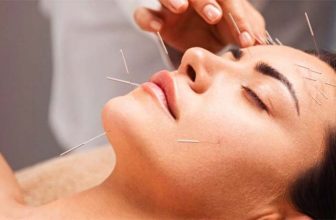
Whether it’s physical, mental or emotional, hormones have a profound effect on your health and well-being. Hormones act as chemical messengers in the body and play a key role in controlling your weight, appetite, and mood among other things. Typically, your endocrine glands will produce the exact amount of each hormone needed for the various bodily processes. But with today’s fast-paced, modern lifestyle, hormone imbalances are unfortunately becoming more and more prevalent. Certain hormones will decline with age – with some people experiencing a more drastic decrease than others. Find out how to remedy this situation, read on for Hormones & Your Weight: 4 Ways to Keep them Balanced!
1. Eat More Protein
Consuming enough protein in your diet is extremely important when it comes to hormone balancing. Dietary protein provides essential amino acids that your body is unable to make on its own, so you should aim to consume protein every day; ideally with every meal to maintain good bone, skin and muscle health. Protein influences the release of hormones that control your appetite and food intake.
Studies have found that eating protein decreases levels of ghrelin, the ‘appetite hormone’ while encouraging the production of hormones that help you to feel full.
2. Exercise Regularly
Exercise can have a significant impact on your hormonal health. One of the biggest benefits of exercise is that it can reduce insulin levels and increase insulin sensitivity. Insulin is a hormone with various functions; it allows cells to take up sugar and amino acids from your bloodstream and use them for energy and muscle maintenance.
However, you only need a small amount of insulin for the job and too much of it can be dangerous. High insulin levels are linked to diabetes, inflammation, cancer and heart disease. Endurance exercise, strength training, and aerobic exercise are just some types of physical activity that can help reduce insulin levels.
3. Manage Your Stress Levels
Stress can play havoc with your hormones. It affects two major hormones – adrenaline and cortisol. Cortisol is known as the ‘stress hormone’ because it helps your body deal with stress over the ‘long-term’, while adrenaline is the ‘fight or flight’ hormone providing your body with a surge of energy needed to respond to immediate danger.
However, these days, these hormones tend to be triggered by busy and overwhelming lifestyles rather than by real threats from predators. Chronic stress causes cortisol levels to remain heightened, leading to excessive calorie intake, obesity, and stubborn belly fat. Engaging in stress-reducing techniques like massage, listening to relaxing music, meditation and yoga can help you reduce cortisol levels in your body.
4. Increase Human Growth Hormone
Human growth hormone is produced by your pituitary gland and is responsible for body composition and metabolism. If you are looking to lose weight, you will want to try and increase the levels of this hormone produced in your body. The good news is that there are several ways to do this. Human growth hormone is commonly referred to as HGH and can be taken directly in supplement form via injections. Or, you can try and raise it naturally in the body by exercising more, cutting down on sugar and refined carbs, processed foods, and giving intermittent fasting a try. HGH levels tend to spike naturally during the night, so avoiding heavy meals before bed can also help.









